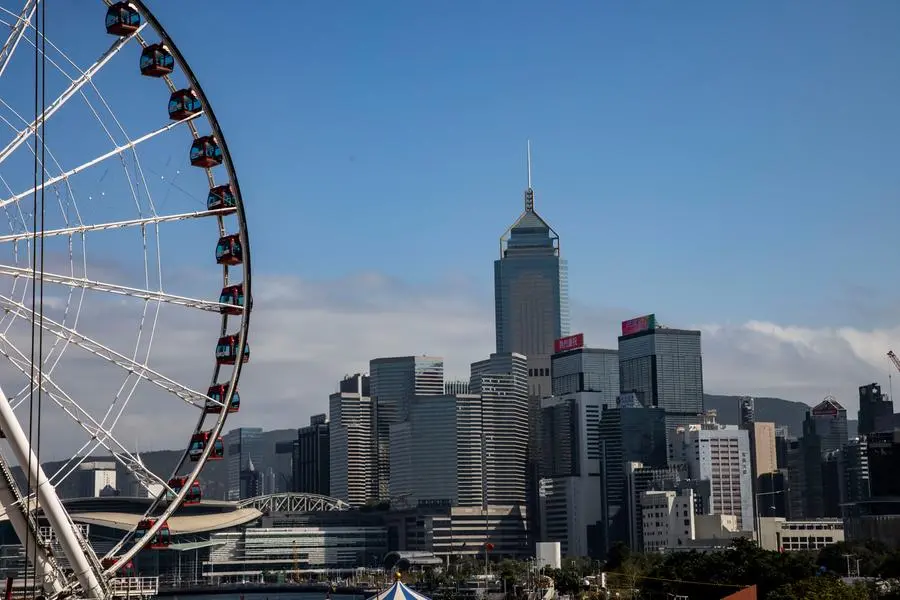PHOTO
Hong Kong has axed three major property transaction taxes in a bid to revive its depressed housing market, finance minister Paul Chan said in his annual budget speech Wednesday.
The finance hub is among the world's least affordable residential markets, but home prices retreated last year amid high interest rates and China's economic slowdown.
Chan said Hong Kong immediately scrapped three types of stamp duty, reversing measures introduced more than a decade ago to rein in speculation fuelled in part by mainland Chinese buyers.
"After prudent consideration of the overall current situation, we decide to cancel all demand-side management measures for residential properties with immediate effect," Chan told the legislature.
The cancelled taxes include stamp duties -- which were once as high as 15 percent -- imposed on property buyers who are not Hong Kong permanent residents and on those purchasing a second home.
"No Special Stamp Duty, Buyer's Stamp Duty or New Residential Stamp Duty needs to be paid for any residential property transactions starting from today," Chan said.
"We consider that the relevant measures are no longer necessary amidst the current economic and market conditions," he said, noting that residential market sentiment became "very cautious" since the middle of last year.
Hong Kong had already reduced stamp duty last October in a bid to revive the market, but the reception had been largely muted.
Flat prices fell seven percent during 2023 and transactions slid five percent, to around 43,000.
The weak housing market has also hurt public finances, with the Hong Kong government heavily reliant on land sales for revenue but only netting HK$19.4 billion ($2.5 billion) last year.
Hong Kong recorded a HK$102 billion deficit in 2023-24, with fiscal reserves falling to HK$733 billion due to "challenges posed by the epidemic and external environment", Chan added.
- Bolstering appeal -
Hong Kong's economy is expected to grow between 2.5 and 3.5 percent this year, the finance chief said, aided by factors such as the US Federal Reserve's expected interest rate cut.
"Amid a complicated and ever-changing international environment... more strenuous efforts are required to strengthen momentum of our economic recovery," Chan said.
Hong Kong hopes to reboot its reputation as a finance capital following years of strict pandemic curbs and social unrest, with critics saying that Beijing's ongoing political crackdown on the city has led to an exodus of talent and capital.
Chan on Wednesday pledged around HK$1 billion for tourism development, including funds for "mega events" and monthly fireworks and drone shows over the city's Victoria Harbour.
Hong Kong last year saw about 34 million visitor arrivals, down from record levels of 65 million in 2018.
The Hong Kong Monetary Authority also relaxed mortgage rules on Wednesday, allowing homebuyers to borrow more, and eased an income-related stress test.
Louis Chan of Centaline Property Agency told AFP scrapping the property market curbs would bring "very positive impacts".
"I expect the trading volume to surge by 60 to 70 percent, with some even doubling... I expect the property price to go up by three to five percent in the second quarter," said Chan.
Deloitte China tax partner Polly Wan said the stamp duty cancellations were "welcome moves to help stabilise the property sector and boost overall economic revival".
But economist Terence Chong at the Chinese University of Hong Kong said the impact of mortgage interest rates would outweigh that of tax cuts.
"It is the most important to create a healthily rising market because no matter how cheap a flat is, young people won't put a major investment of their life in a depreciating asset," Chong said.





















